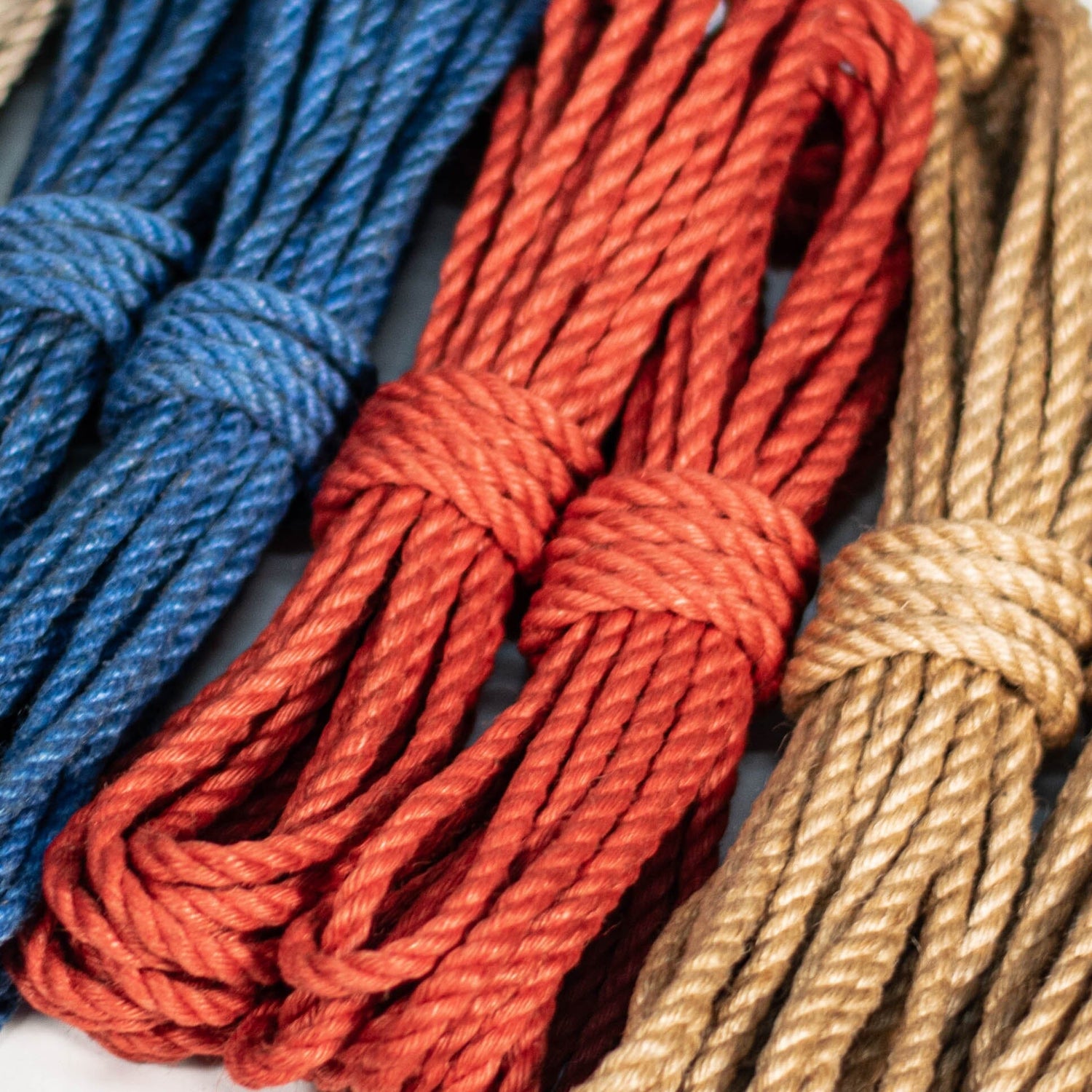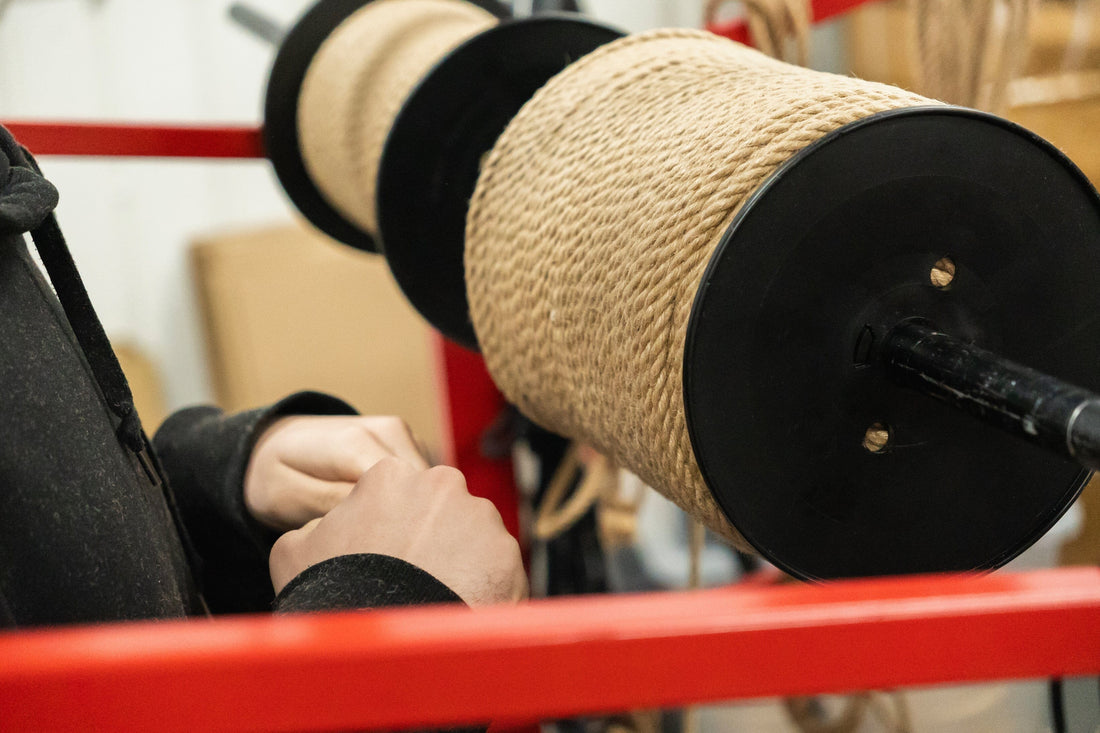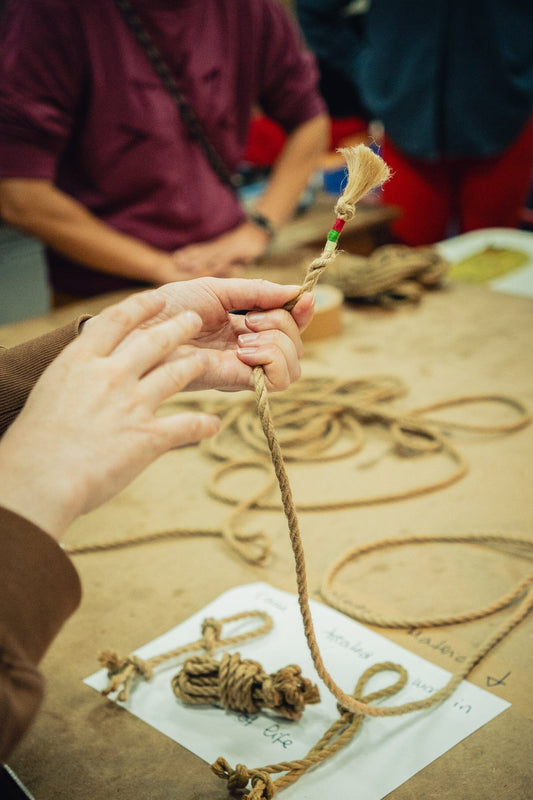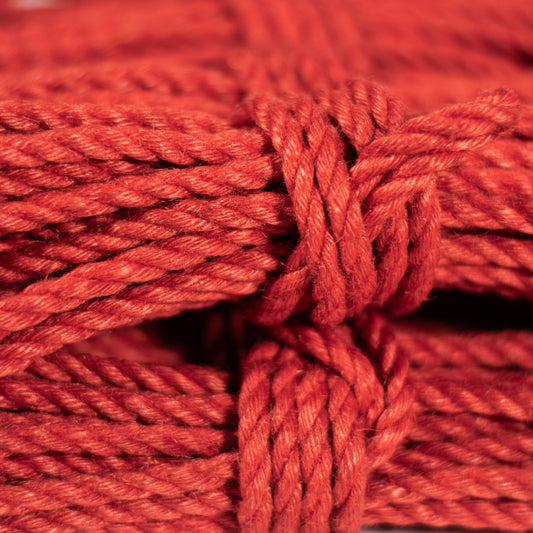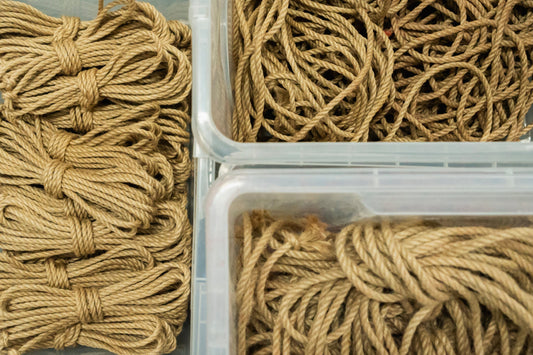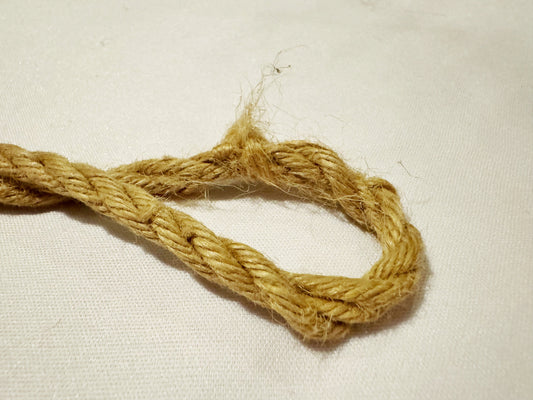This is not an unreasonable question and there are reasons for this!
For starters jute ropes made for shibari are "single ply" which means that they are made in a different way to modern rope manufacturing (which tends to be "double ply"). For this reason the ropes have to come from specialist suppliers who make the ropes to this particular specification. This is an '"old school", more traditional way of making rope that is not the standard in modern industry.
Secondly, when you find cheap sources of jute rope online, even if advertised as shibari rope, they will almost certainly be double ply because they're probably coming from large industrial factories. The rope is also very likely sold in its untreated state, meaning the rope is coarse, stiff and prickly. For this reason they might take a while to break in and feel unpleasant to tie with and get tied by. You can buy other types of rope that are naturally softer like cotton or linen, silk, etc but you should note that these have different properties to jute, so some shibari techniques might need to be modified when tying with non-jute ropes. This is especially true for suspension.
Lastly the rope treatment process is labour intensive, requiring the ropes to be cut, the ends trimmed, and a couple of rounds of frictioning/singeing/oiling the ropes. The best choice for people looking for rope on a budget is to get great quality untreated jute ropes and treat them yourself! Not only do you save money - you also get more control over how your ropes feel. A reel of our raw rope for example will get you about 26 to 28 lengths of 7.5 meters for a total of £160 (that's only £6 per length which is a huge saving).
For more questions, email us at anatomie.studio@gmail.com.
